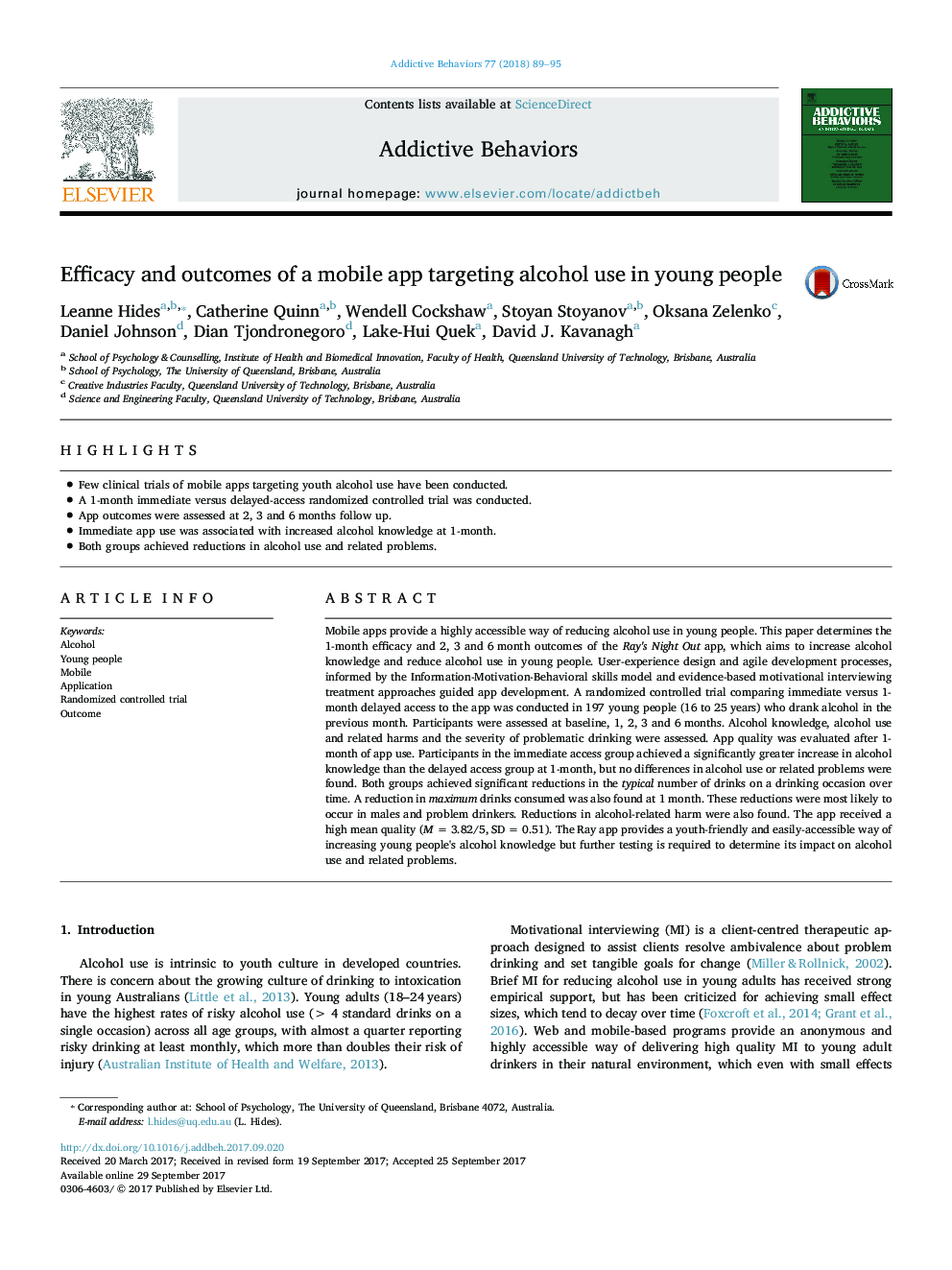| Article ID | Journal | Published Year | Pages | File Type |
|---|---|---|---|---|
| 5037535 | Addictive Behaviors | 2018 | 7 Pages |
â¢Few clinical trials of mobile apps targeting youth alcohol use have been conducted.â¢A 1-month immediate versus delayed-access randomized controlled trial was conducted.â¢App outcomes were assessed at 2, 3 and 6 months follow up.â¢Immediate app use was associated with increased alcohol knowledge at 1-month.â¢Both groups achieved reductions in alcohol use and related problems.
Mobile apps provide a highly accessible way of reducing alcohol use in young people. This paper determines the 1-month efficacy and 2, 3 and 6Â month outcomes of the Ray's Night Out app, which aims to increase alcohol knowledge and reduce alcohol use in young people. User-experience design and agile development processes, informed by the Information-Motivation-Behavioral skills model and evidence-based motivational interviewing treatment approaches guided app development. A randomized controlled trial comparing immediate versus 1-month delayed access to the app was conducted in 197 young people (16 to 25Â years) who drank alcohol in the previous month. Participants were assessed at baseline, 1, 2, 3 and 6Â months. Alcohol knowledge, alcohol use and related harms and the severity of problematic drinking were assessed. App quality was evaluated after 1-month of app use. Participants in the immediate access group achieved a significantly greater increase in alcohol knowledge than the delayed access group at 1-month, but no differences in alcohol use or related problems were found. Both groups achieved significant reductions in the typical number of drinks on a drinking occasion over time. A reduction in maximum drinks consumed was also found at 1Â month. These reductions were most likely to occur in males and problem drinkers. Reductions in alcohol-related harm were also found. The app received a high mean quality (MÂ =Â 3.82/5, SDÂ =Â 0.51). The Ray app provides a youth-friendly and easily-accessible way of increasing young people's alcohol knowledge but further testing is required to determine its impact on alcohol use and related problems.
